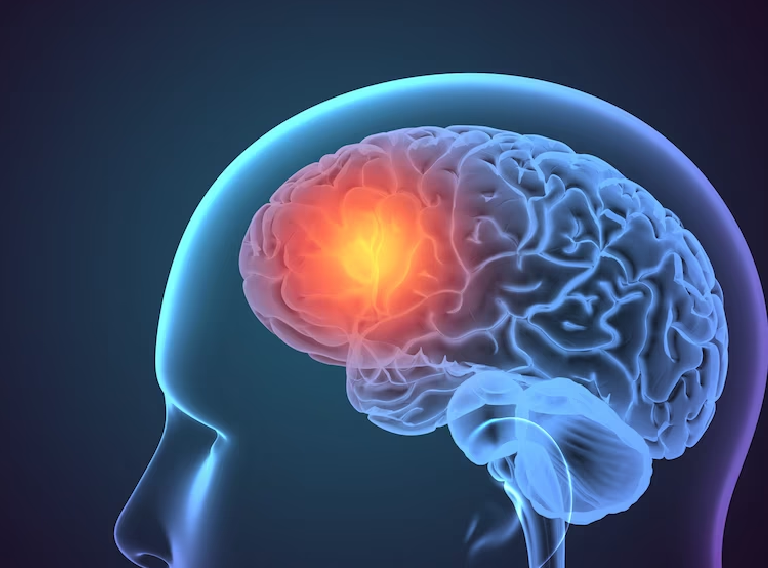Brain Stroke
A brain stroke, also known as a cerebrovascular accident (CVA), occurs when blood flow to the brain is disrupted, resulting in damage to brain tissue. A brain stroke can be caused by a clot in the blood vessels that supply the brain (ischemic stroke) or by a rupture of a blood vessel in the brain (hemorrhagic stroke). A brain stroke can have devastating effects on a person’s physical and mental abilities, and it is essential to recognize the signs of a stroke and seek medical attention immediately.
The “Golden Hour” is the first hour after a stroke occurs, during which time medical treatment can be most effective in preventing or minimizing brain damage. During this time, doctors can administer clot-busting drugs or perform surgery to remove a clot that is blocking blood flow to the brain. It is crucial to seek medical attention as soon as possible during the Golden Hour to increase the chances of a positive outcome.
Symptoms of a stroke can vary depending on the type of stroke and the area of the brain affected. However, the most common symptoms of a stroke include:
- Sudden numbness or weakness in the face, arm, or leg, especially on one side of the body
- Sudden confusion or trouble speaking or understanding speech
- Sudden trouble seeing in one or both eyes
- Sudden trouble walking, dizziness, loss of balance, or coordination
- Sudden severe headache with no known cause
If you or someone you know experiences any of these symptoms, it is essential to seek medical attention immediately. Time is of the essence when it comes to treating a stroke, and the sooner treatment is administered, the better the chances of recovery.
To prevent a stroke from occurring, it is important to maintain a healthy lifestyle, including regular exercise, a balanced diet, and avoiding smoking and excessive alcohol consumption. It is also essential to manage any underlying health conditions, such as high blood pressure, diabetes, or high cholesterol, that can increase the risk of stroke.
In conclusion, a brain stroke is a serious medical condition that requires immediate medical attention. The “Golden Hour” is the critical time period during which medical treatment can be most effective in preventing or minimizing brain damage. Knowing the signs of a stroke and seeking medical attention immediately can help increase the chances of a positive outcome. To prevent a stroke from occurring, it is essential to maintain a healthy lifestyle and manage any underlying health conditions.
What is Golden Hour
he “Golden Hour” refers to the first hour after a medical emergency, such as a heart attack, stroke, or traumatic injury, during which time medical treatment can be most effective in preventing further damage and improving outcomes. In the case of stroke, this is the critical time period during which medical treatment can be most effective in preventing or minimizing brain damage.
During the Golden Hour of a stroke, medical professionals can perform a procedure called thrombolysis, which involves administering clot-busting drugs to dissolve the clot that is blocking blood flow to the brain. The earlier thrombolysis is performed, the greater the chances of success in restoring blood flow and preventing further brain damage.
In addition to thrombolysis, medical professionals may also perform other procedures during the Golden Hour, such as mechanical thrombectomy, which involves removing the clot with a catheter, or craniotomy, which involves removing a portion of the skull to relieve pressure on the brain.
However, it’s important to note that not all stroke patients are candidates for thrombolysis or other procedures, and the decision to perform these procedures is based on a thorough evaluation of the patient’s medical history, symptoms, and imaging results.
In summary, the Golden Hour is the first hour after a medical emergency, during which time medical treatment can be most effective in preventing further damage and improving outcomes. In the case of stroke, this is the critical time period during which thrombolysis or other procedures can be performed to restore blood flow to the brain and prevent further brain damage. If you or someone you know experiences symptoms of a stroke, it’s essential to seek medical attention immediately to increase the chances of a positive outcome.
At Russh hospitals we are equipped with the best technology and infrastructure to treat brain strokes and with a proven track record of saving hundreds of patients we are the first choice for any medical treatment in Suchitra circle and Kompally, Hyderabad.
Best Neurology Doctors in Suchitra and Kompally
Russh Super Speciality Hospital proudly showcases the epitome of neurological care – the best Neurology doctors in Suchitra and Kompally. Our accomplished team of physicians, known for their exceptional proficiency and compassionate approach, ensures optimal brain and nervous system health. With an unwavering commitment to excellence, our top-tier Neurology experts offer cutting-edge solutions tailored to your unique needs. From advanced diagnostics to personalized treatment plans, Russh prioritizes your well-being.
Experience superior healthcare guided by the best Neurology doctors in Suchitra and Kompally, exclusively at Russh Super Speciality Hospital. Your neurological health is our foremost concern.

